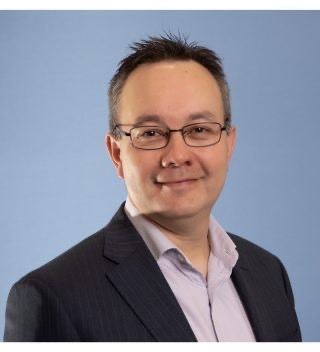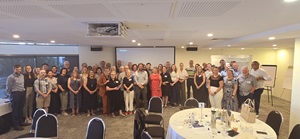2024 | Volume 25 | Issue 6
The Northern Territory (NT) is set to undergo a fresh initiative with the launch of the NT Rural Training Pathway, a program designed to tackle workforce shortages in remote and rural healthcare.
Led by the Royal Australasian College of Surgeons (RACS) Australian Board in General Surgery and supported by the NT government and local healthcare partners, this pathway gives aspiring general surgeons the chance to train in the NT. The goal is to encourage them to stay and serve its communities after graduation.
The program will launch as part of next year’s national selection process for General Surgery. Candidates will be ranked based on their scores, and those selected can choose to start this pathway in 2026. From that year, the program will be available on demand.

Dr Robert Whitfield
Dr Robert Whitfield, Chair of the Australian Board in General Surgery and Monica Carrarini, Director of Education and Training at General Surgeons Australia, share insights into how the pathway was developed, its significance, the challenges ahead, and their aspirations for the program’s impact.
Rationale behind the pathway
“For years, we’ve known that getting specialists, especially surgeons, to stay in rural and remote areas after their training is a challenge,” Dr Whitfield says.
The real challenge is attracting doctors to live and work in rural centres, rather than opting for metropolitan areas, where workforce shortages are generally less severe.
Dr Whitfield emphasises that all General Surgery Trainees currently spend on average three to four rotations in rural areas during their training, but that exposure alone is insufficient to address the workforce imbalance. The new pathway seeks to remedy this.
“Our goal is to encourage individuals who already have a connection to the NT—whether they grew up there or have worked in the region during their early medical years —to commit to staying and serving these communities,” he says.
“For example, if someone is currently living and working in Darwin or Alice Springs and wants to become a general surgeon, we aim to provide a program that maximises their exposure and connection with the community during their training. The goal is for them to return as consultants in the future.”
The program will provide extensive training opportunities in the NT, nurturing deeper ties to the region and building the competencies required for rural practice.

Monica Carrarini
A unique opportunity
Monica Carrarini explains the initiative’s primary target: “It’s aimed at junior doctors who have a particular interest in working or returning to the NT. This pathway benefits those who are genuinely committed to their community and aspire to become rural surgeons.”
Beyond benefiting the NT, the pathway also serves aspiring rural surgeons more broadly, offering greater exposure to the unique demands of rural healthcare.
“The breadth of practice in places like Alice Springs and Darwin is unmatched,” Dr Whitfield says. “General surgeons there deal with a wide range of presentations across all age groups, including trauma and conditions that are seldom if ever dealt with in metro general surgery practice such as renal stone disease and neurotrauma. There’s also meaningful interaction with Indigenous communities—something much less commonly encountered in urban centres.”

Challenges and collaboration
The October workshop in Darwin, organised by RACS through Flexible Approach to Training in Expanded Settings (FATES) funding, played a crucial role. It brought together stakeholders to discuss implementation strategies and identify hurdles beyond the board’s purview.
Monica highlights key concerns. “Issues like accommodation, leave entitlements, and other employment matters fall outside our control. We’ve emphasised to the government and hospitals the need to address these barriers to ensure the pathway’s success.”
She also acknowledges initial concerns from training regions such as South Australia. “These states typically allocate Trainees to the NT, and there were worries this could impact their own workforce. However, with careful modelling and open communication, we can identify potential issues well in advance for each training region.”
Dr Whitfield says everyone agrees Trainees can’t spend all their time in Darwin and Alice Springs for sufficient exposure to the breadth of general surgery. To make it work, regional chairs must cooperate and provide positions for two years to enable Trainees on the pathway to gain additional exposure outside of the NT.
“We thought that would be a challenge but there’s been little angst. We have all been working pretty well together,” he says.
Looking ahead
The NT Rural Training Pathway is designed to achieve a lasting impact on the region’s healthcare system. By nurturing a steady pipeline of surgeons trained in and for the NT, the program aims to ensure communities have consistent access to surgical expertise.
Monica and Dr Whitfield caution that success depends on demand and the availability of post-graduate positions.
“The program's success depends on interest and the availability of positions for Trainees after graduation. If enough Trainees join and spend time in regional areas, it could have a significant impact. However, a key challenge is ensuring there are consultant positions available when they finish.
“The goal is for jurisdictions to provide opportunities, so Trainees don’t end up working elsewhere, like Sydney, due to a lack of jobs in Darwin. While it’s not a complete solution to workforce issues, it could make a significant difference,” Dr Whitfield says.
It’s the first of its kind in general surgery for the NT, sums up Monica. “The pathway is not about instant gratification; we need to assess and evaluate the long-term impact.”
More: Northern Territory Rural Training Pathway - General Surgeons Australia

